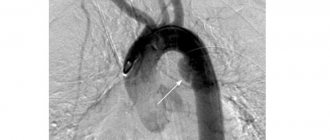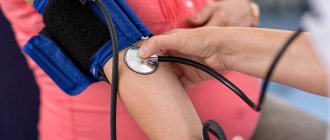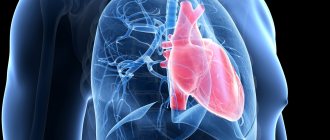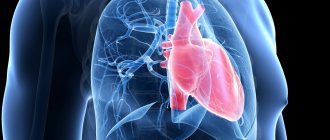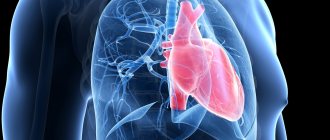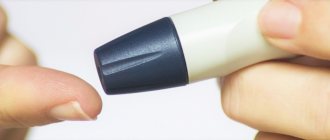Liver cirrhosis is a chronic disease with a tendency to progress. The disease leads to the development of irreversible changes in the cells of the organ. As a result, normal tissue is replaced by fibrous tissue, which makes normal functioning simply impossible. This affects the functioning of vital organs and systems of the body.
Damage and inflammation of liver cells leads to their complete death. Eighty percent of recorded cases of cirrhosis were caused by viral hepatitis or alcoholism. Parasitic diseases, taking certain medications, autoimmune processes, and more can also provoke the appearance of a terrible disease.
The disease develops quite slowly. The first signs may be completely absent. Over time, the following symptoms may appear: jaundice, itching, spider veins, weakness, decreased performance, weight loss due to loss of appetite. In this article we will talk in more detail about decompensated cirrhosis of the liver.
What does the stage of decompensation mean?
Cirrhosis occurs in several stages and it is very important not to miss the first signs of the pathological process. Unfortunately, you won’t be able to completely get rid of the disease, but you can slow down further progression. At the first stage of the disease, inflammatory-necrotic changes develop in the liver.
Compensated cirrhosis manifests itself in the form of weakness, fatigue, decreased concentration and attention, and decreased appetite. Patients often attribute these signs to vitamin deficiency or overwork. Already in the second stage, more serious symptoms appear. The skin becomes yellow, itching appears, and body temperature rises.
Patients are also concerned about abdominal discomfort, and an attack of nausea may result in vomiting with impurities of bile secretion. The stool becomes lighter, while the urine takes on a darker hue. The liver tissue begins to be replaced by fibrous tissue, but even at this stage the organ continues to work as usual.
Decompensation of liver cirrhosis is associated with life-threatening complications
The third stage is decompensated cirrhosis of the liver. At this stage, serious complications may appear in the form of hepatic coma, blood poisoning, pneumonia, vein thrombosis, and others. This stage is also characterized by sudden bleeding from the nose, gums or anus.
Patients also experience diarrhea, complete impotence, a sharp decrease in body weight, vomiting, high fever, as well as atrophy of the muscles of the arms and in the intercostal part. Patients must be hospitalized, as the likelihood of death is high. The third stage is characterized by complete disruption of functional activity and deformation of the liver.
At this stage, a large number of hepatocytes die. In this case, the area of damage to the organ is almost 90%. The terminal stage is characterized by a coma. Liver deformity affects a wide area. Against the background of hepatic coma, the brain is affected. Most often, the patient simply does not come out of the coma.
Important! Liver cirrhosis in the stage of decompensation leads to the fact that the patient’s condition rapidly deteriorates and death can occur at any time.
It is important not to miss the first symptoms of the disease
Symptoms
The third stage of cirrhosis is characterized by the appearance of the following symptoms:
- severe attack of pain in the area of the right hypochondrium. Sometimes unpleasant sensations become permanent, and to relieve them you will need to take potent drugs;
- signs of intoxication of the body: fever, dizziness, headache, lack of appetite;
- dyspeptic disorders: diarrhea, constipation, heartburn, stomach pain, vomiting;
- uterine, gastric, intestinal bleeding. This is due to the fact that the liver stops producing substances that bind blood, and the spleen, which increases in size, stops producing platelets;
- metabolic disorders lead to atrophic changes in the muscles, which is why the patient loses weight and feels weak and apathetic. Due to protein metabolism disorders, the risk of fractures increases;
- hormonal imbalance leads to infertility, impotence and decreased libido;
- high fever;
- splenomegaly, that is, an increase in size of the spleen;
- the skin becomes dry and wrinkled;
- severe exhaustion;
- redness of the palms, soles and fingers;
- insomnia;
- aggression;
- a strong increase in abdominal volume;
- swelling in the legs;
- hardening of the liver;
- irritability;
- the skin takes on a bronze-yellow hue. This is due to the fact that bilirubin begins to accumulate under the skin.
Patients experience severe itching
It is worth mentioning separately about changes in mental state during cirrhosis. Why is this happening? One of the reasons is due to the fact that toxic substances enter the brain. In some cases, patients become lethargic and lose orientation. They may experience confusion, depression, irritability, and imaginary anxiety.
[node:field_field_doprekl2]
Good to know
VetConsult+, 2015. All rights reserved. The use of any materials posted on the site is permitted provided there is a link to the resource. When copying or partially using materials from the pages of the site, be sure to place a direct hyperlink open to search engines, located in the subtitle or in the first paragraph of the article.
DECOMPENSATION
, -i,
w.
Honey. Violation of compensation (2 digits).
Cardiac decompensation.
Source (printed version):
Dictionary of the Russian language: In 4 volumes / RAS, Institute of Linguistics.
research; Ed. A. P. Evgenieva. — 4th ed., erased. - M.: Rus. language; Polygraph resources, 1999; (electronic version):
Fundamental electronic library
Decompensation (from the Latin de... - a prefix denoting absence, and compensatio - balancing, compensation) is a disruption of the normal functioning of an individual organ, organ system or the entire organism, occurring as a result of exhaustion of capabilities or disruption of the adaptive mechanisms to pathological changes caused by a disease, for example , decompensation of the heart due to its defects.
Making the Word Map better together
Hello! My name is Lampobot, I am a computer program that helps you make Word Maps. I can count perfectly, but I still don’t understand very well how your world works. Help me figure it out!
I began to understand the world of emotions a little better.
Question: super speed
- is it something neutral, positive or negative?
Sentences containing "decompensation"
- Nutrition planning also has its own characteristics in a state of acute decompensation
of metabolic processes caused by high blood sugar. - Ketoacidosis occurs under the influence of provoking factors of decompensation
of diabetes mellitus. - The clinical course is characterized by its gradual onset, without signs of decompensation
. - (all offers)
Additionally
Expressions containing "decompensation":
Nutrition planning also has its own characteristics in a state of acute decompensation
metabolic processes caused by high blood sugar.
Ketoacidosis occurs under the influence of provoking factors of decompensation
diabetes mellitus
The clinical course is characterized by its gradual onset, without signs of decompensation
.
Diagnostic examination
Laboratory tests, biopsy, ultrasound, and laparoscopic examination will help to assess the patient’s condition. Using ultrasound diagnostics, a specialist can pay attention to the increased size of the liver, as well as the presence of structural changes. The organ has a dense structure with nodules.
Laparoscopy allows you to determine the type and degree of pathology, as well as the general condition of the affected organ. Using a biopsy, you can learn about structural changes in the liver at the cellular level.
In a general blood test in cirrhosis, the erythrocyte sedimentation rate is increased, and hemoglobin levels are decreased. With microscopy of urinary sediment, a specialist will be able to see salts, as well as an increased level of red blood cells. In a biochemical study, the level of bilirubin, AST, and ALT will be increased. Laboratory tests will help make a diagnosis.
Features of treatment
Treatment of liver cirrhosis at the decompensation stage involves maintaining the functioning of vital organs and systems of the body, as well as preventing dangerous complications. Drug therapy includes the use of the following drugs:
- vitamins, B vitamins play a special role in treatment;
- hepatoprotectors;
- diuretics in combination with magnesium and potassium preparations to prevent swelling and ascites;
- means that accelerate recovery processes;
- antibiotics;
- immunostimulants.
In severe cases, surgery to transplant the liver or part of it is indicated.
Along with this, it is important to radically change your lifestyle. This means giving up bad habits and adjusting your diet. Patients are assigned to treatment table No. 5. In case of decompensated cirrhosis, taking antiviral drugs is strictly prohibited. Such drugs enhance the development of necrotic changes in the organ.
Let us highlight the basic rules of the treatment process for decompensated cirrhosis:
- it is important to limit salt and liquid intake, this will help relieve swelling with ascites;
- taking vitamins and minerals;
- taking iron supplements for anemia;
- avoidance of fatty, fried and heavy foods.
Patients are allowed to include pureed soups, dairy products, jelly, compotes, fruit drinks, and rosehip decoction in their diet. Bread, strong coffee, legumes, onions, garlic, and radishes are strictly prohibited. Traditional medicine recipes will also help relieve discomfort.
Treatment of alcoholic cirrhosis of the liver
Let's consider the most effective methods:
- take horsetail, chicory rhizome, St. John's wort and yarrow in equal proportions. A tablespoon of dry herb is poured into a glass of boiling water. The product should sit for four hours. The decoction should be taken half an hour before the main meal;
- Combine one part nettle, as well as two parts each of wheatgrass and rose hips. A tablespoon of raw material is poured into a glass of water and boiled over fire for fifteen minutes. The product should be taken twice a day, 250 g.
But as you know, any disease is easier to prevent, and cirrhosis is no exception. The main preventive measure is the exclusion of alcoholic beverages. Diet plays an important role. You should limit your consumption of fatty, fried foods, and fast foods.
Don't forget about these simple precautions:
- wash your hands before eating;
- Before cooking vegetables and fruits, they should be thoroughly rinsed under running water;
- observe the rules of personal hygiene;
- give up promiscuity;
- don't use drugs;
- control blood pressure levels;
- In case of cardiovascular disorders, consult a specialist.
You will have to give up animal fats
Comparative indicators of diabetes by disease stage
To determine the stage of the disease, indicators from various studies are compared with standards. This helps control the course of the disease. In cases of decompensated diabetes mellitus, the indicators are always high.
Double blood test to determine sugar levels
Determining blood sugar levels is carried out in two stages:
- the usual fasting test;
- glucose load test (blood test two hours after the patient eats or drinks sweet water).
| Indicators | Fasting sugar (mmol/l) | Glucose loading test (mmol/l) |
| Compensation | 4,4–6,1 | 5,5–8 |
| Subcompensation | 6,2–7,7 | 8,1–10 |
| Decompensation | >7,7 | >10 |
Blood for glycosylated (glycated) hemoglobin
A protein found in red blood cells (erythrocytes), or glycosylated hemoglobin, is referred to in medical tests as HbA1C. Formed by inhibition of hemoglobin and glucose. The analysis data records the percentage of substances (the condition is assessed for three months).
If the rate is more than 10%, diabetes with irreversible consequences is diagnosed
Urine test to determine sugar levels
Glycosuria or the level of glucose in the urine in the absence of diabetes and in the compensated stage is zero, the permissible threshold is 0.06–0.083 mmol/l. In the subcompensation stage, the upper limit should not exceed 0.5 mmol/l. A higher rate is defined as decompensated diabetes.
Blood test for triglyceride and cholesterol levels
These indicators are used to assess the risk of developing cardiovascular diseases (including heart attack and stroke).
Men always have higher triglyceride levels than women
Determination of BMI (BMI)
Obesity is an invariable companion of diabetes mellitus. BMI (body mass index) is calculated using a standard formula.
In type 2 diabetes, obesity can be both a cause and a complication of the disease.
Arterial pressure
Diabetics typically have arterial hypertension. Acceptable indicators: with compensation and subcompensation do not exceed 140/90 and 160/100, respectively. Decompensation is characterized by higher digital values. Diagnosed decompensation of diabetes mellitus requires immediate intervention in the treatment process. To save the patient, it is necessary to change the treatment tactics of both the underlying disease and associated complications.
Forecast
How long do patients with liver cirrhosis live? The prognosis largely depends on the stage of the pathological process. With a compensated form, it is possible to live up to ten years. You can live with decompensated liver cirrhosis for only one to two years. According to statistics, life expectancy in forty percent of patients does not exceed three years.
Experts say that only every fifth person can live another five years. With ascites, only a quarter of all patients can live three years. If hepatic encephalopathy develops, you will not be able to live more than a year. Falling into a comatose state almost always ends in death.
Important! The prognosis of decompensated liver cirrhosis is most often unfavorable.
It is impossible to unequivocally answer the question of how long patients with stage 4 cirrhosis live, since death as a result of complications can occur at any time. A common cause of death at the stage of decompensation is gastric and intestinal bleeding. Ascites, complicated with peritonitis, is in second place.
Questions and answers
Is it always necessary to admit a patient with an exacerbation of his mental state to the hospital?
Hospitalization is required if the doctor assesses the condition as serious, and the person’s behavior is aggressive and poses a threat to others. It is also necessary to place the patient in a hospital if the deviation is discovered for the first time. In this case, a selection of drugs with round-the-clock monitoring of their effect is required.
What to do if a person with a mental disorder refuses treatment?
You can call a doctor to your home so that he can assess the person’s condition and decide on further actions.
Possible complications
As the disease progresses, serious complications can occur, such as cancer, bleeding, fluid accumulation, and more. Let's talk about the most common processes that occur at the stage of decompensation.
Hepatic encephalopathy
Pathology leads to neuropsychic disorders, which manifest themselves in the form of changes in behavior and consciousness. With cirrhosis, the blood accumulates toxic substances that primarily affect parts of the brain. The person becomes inattentive and irritable, his sleep is disturbed, and drowsiness becomes permanent.
Gradually, the patient becomes lost in time, his speech is impaired, and his behavior becomes inadequate. Treatment includes infusion therapy. Hepatoprotectors help reduce the concentration of toxins in the circulatory system. Sometimes even gastric lavage is required. To reduce the absorption of decay products, antibacterial agents are used.
Brain damage is primarily associated with toxic substances entering the blood
Ascites
Due to the accumulation of fluid, the abdomen increases in size. In cirrhosis, deformed cells compress blood vessels, which leads to impaired blood supply. Fluid accumulation can be reported by measuring abdominal circumference daily. The umbilical ring is stretched and the navel turns outward. Veins are clearly visible on the skin of the abdomen.
Bed rest is recommended for patients. The amount of salt is sharply limited, and fluid intake is also reduced. Under the control of diuresis, diuretic drugs are prescribed. If there is no response to these drugs, a puncture of the abdominal cavity is performed.
Hepatic coma
The pathological process causes a decrease in the number of active cells. If, along with a violation of the functional activity of the liver, changes in metabolic processes occur, hepatic coma develops. It appears suddenly and lasts from 1 to 3 days.
Treatment is carried out in the intensive care unit, where vital functions must be constantly monitored. Patients are prescribed parenteral nutrition through the administration of medicinal solutions with nutrients. Detoxification therapy is carried out.
So, cirrhosis of the liver is a dangerous, progressive disease that can ultimately lead to death. Decompensation is the third stage of the disease, in which serious structural damage to the organ and severe clinical symptoms are observed.
The prognosis is generally unfavorable, which is why it is so important not to miss the first symptoms. Carefully following medical recommendations, adjusting your diet, giving up bad habits - all this will help prolong your life.
Additionally
Decompensated diabetes is dangerous because of its unpredictability. The slightest provocation (diet violation, stress, lack of insulin) can lead to the death of the patient. In order not to bring the disease to its extreme stage, a diabetic must constantly monitor sugar levels and general well-being, visit an endocrinologist in a timely manner, not independently treat the disease using unconventional methods, without the prior approval of a doctor, and follow all recommendations on nutrition and the use of medications. You cannot get rid of diabetes; the patient must learn to coexist with the disease, protecting himself as much as possible from dangerous consequences.
